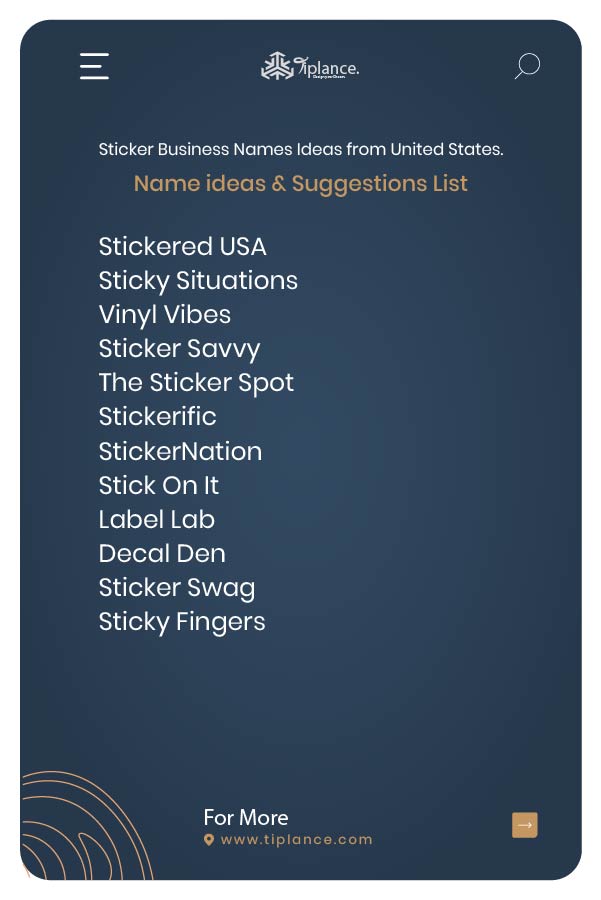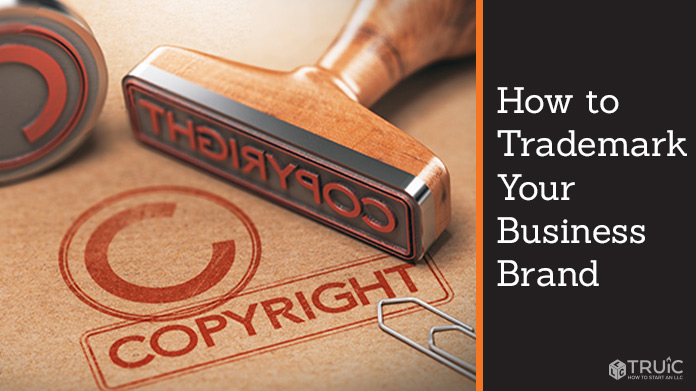Why a Great Business Name Matters
A well-crafted business name is the foundation of a successful brand. It’s the first impression that customers, investors, and partners will have of your company, and it can make or break your reputation. A great business name can help you stand out in a crowded market, convey your values and mission, and create an emotional connection with your target audience. On the other hand, a poorly chosen name can lead to confusion, misinterpretation, and a lack of credibility.
In today’s digital age, a business name is not just a label, but a keyword that can make or break your online presence. With the rise of search engines and social media, a unique and memorable name can help you rank higher in search results, increase your online visibility, and drive more traffic to your website. This is why it’s essential to choose a business name that is not only cool but also relevant, memorable, and easy to spell.
A great business name can also help you establish a strong brand identity, which is critical for building customer loyalty and differentiating yourself from competitors. A well-chosen name can convey your company’s values, mission, and personality, and help you connect with your target audience on an emotional level. For example, a business name like “EcoCycle” conveys a sense of environmental responsibility and sustainability, while a name like “TechForge” suggests innovation and cutting-edge technology.
In addition to its impact on branding and marketing, a great business name can also affect your company’s bottom line. A unique and memorable name can help you build a strong reputation, attract new customers, and increase revenue. According to a study by Interbrand, companies with strong brand identities tend to outperform their competitors in terms of revenue growth and market value.
In conclusion, a great business name is essential for building a successful brand, establishing a strong online presence, and driving business growth. By choosing a name that is cool, relevant, and memorable, you can create a lasting impression on your customers, investors, and partners, and set your company up for long-term success.
How to Brainstorm Creative Business Name Ideas
Brainstorming creative business name ideas can be a challenging but exciting task. With a little creativity and the right techniques, you can come up with a unique and memorable name that reflects your brand’s values and mission. Here are some tips and techniques to help you get started:
Mind mapping is a powerful tool for generating business name ideas. Start by writing down your company’s values, mission, and target audience in the center of a piece of paper. Then, create a web of related words and ideas that radiate out from the center. This will help you identify patterns and connections that can inspire creative name ideas.
Word association is another effective technique for generating business name ideas. Write down a list of words related to your company’s products or services, and then brainstorm words that are associated with each of those words. For example, if you’re starting a coffee shop, you might write down words like “coffee,” “beans,” “roast,” and “brew.” Then, brainstorm words that are associated with each of those words, such as “buzz,” “energy,” “flavor,” and “aroma.”
Online tools can also be a great resource for brainstorming business name ideas. Websites like Namechk and Wordoid allow you to generate random name ideas based on keywords and phrases. You can also use online thesauruses and dictionaries to find synonyms and antonyms of words related to your company.
Another approach is to use alliteration, rhyme, or assonance to create a memorable and catchy name. For example, “Sunny Side Up” or “Brew-tiful Day” are names that use alliteration and rhyme to create a fun and memorable brand identity.
When brainstorming business name ideas, it’s also important to consider the tone and personality you want to convey. Do you want your name to be serious and professional, or fun and playful? Do you want to convey a sense of innovation and cutting-edge technology, or tradition and heritage? By considering these questions, you can create a name that reflects your brand’s values and mission.
Finally, don’t be afraid to think outside the box and come up with unusual or unconventional name ideas. Some of the most successful brands have names that are unexpected and creative, such as “Google” or “Amazon.” By taking a risk and trying something new, you can create a name that truly stands out and reflects your brand’s unique personality.
The Power of Wordplay: Using Puns and Double Meanings
Wordplay is a powerful tool in business naming, allowing companies to create memorable and catchy names that stand out from the competition. Puns and double meanings are particularly effective, as they add an extra layer of depth and cleverness to a name. However, using wordplay in business names can also be a double-edged sword, as it can be perceived as cheesy or unprofessional if not done correctly.
One of the benefits of using wordplay in business names is that it can create a sense of personality and tone. For example, a company like “Paws & Relax” uses a pun to convey a sense of fun and playfulness, while also emphasizing the relaxing nature of their pet grooming services. Similarly, a company like “Brew-tiful Day” uses a play on words to create a sense of warmth and hospitality, while also highlighting their focus on coffee and breakfast.
Another benefit of using wordplay in business names is that it can make a name more memorable. When a name is clever or catchy, it is more likely to stick in customers’ minds and be remembered. For example, a company like “Google” uses a play on words to create a sense of innovation and cutting-edge technology, while also being easy to remember and spell.
However, using wordplay in business names can also have drawbacks. For example, a name that is too clever or cheesy can be perceived as unprofessional or immature. Additionally, a name that relies too heavily on wordplay can be difficult to take seriously, or may not be taken seriously by customers.
Examples of successful businesses that have used wordplay in their names include “Dunkin’ Donuts,” “Krispy Kreme,” and “Taco Bell.” These companies have all used clever and catchy names to create a sense of personality and tone, while also emphasizing their focus on food and customer service.
When using wordplay in business names, it’s essential to consider the target audience and the tone you want to convey. A name that is too clever or cheesy may not be suitable for a professional or formal industry, while a name that is too serious or boring may not be suitable for a creative or playful industry.
Ultimately, the key to using wordplay in business names effectively is to strike a balance between cleverness and professionalism. By using wordplay in a way that is both memorable and respectful, companies can create names that stand out from the competition and resonate with customers.
Creating a Brand Identity: How to Choose the Right Words
When it comes to choosing a business name, it’s essential to consider the words that will reflect your company’s values, mission, and target audience. A well-chosen name can help you establish a strong brand identity and resonate with your customers. In this section, we’ll explore the importance of selecting the right words for your business name and provide guidance on how to make the right choice.
The first step in choosing the right words for your business name is to define your brand identity. What values do you want to convey? What mission do you want to achieve? Who is your target audience? By answering these questions, you can begin to identify the words that will best reflect your brand.
For example, if you’re starting a sustainable fashion brand, you may want to choose words that convey a sense of eco-friendliness and social responsibility. Words like “green,” “eco,” and “sustainable” may be a good starting point. On the other hand, if you’re starting a tech company, you may want to choose words that convey a sense of innovation and cutting-edge technology. Words like “tech,” “innovate,” and “disrupt” may be a good fit.
Another important consideration is the tone you want to convey. Do you want your brand to be seen as fun and playful, or serious and professional? By choosing words that reflect the right tone, you can create a brand identity that resonates with your target audience.
It’s also essential to consider the words that your competitors are using. You want to choose a name that stands out from the competition and avoids any potential conflicts. By conducting a competitor analysis, you can identify gaps in the market and choose words that will help you differentiate your brand.
Finally, it’s crucial to test your business name with your target audience. Ask for feedback and gather opinions to ensure that your name resonates with the people you’re trying to reach. By choosing the right words for your business name, you can create a brand identity that is both memorable and effective.
Some examples of businesses that have successfully chosen the right words for their brand identity include “Patagonia,” “REI,” and “The Body Shop.” These companies have all chosen names that reflect their values and mission, and have created a strong brand identity that resonates with their target audience.
By following these tips and choosing the right words for your business name, you can create a brand identity that is both memorable and effective. Remember to define your brand identity, consider the tone you want to convey, conduct a competitor analysis, and test your name with your target audience. With the right words, you can establish a strong brand identity and achieve success in your industry.
Unconventional Business Name Ideas: Thinking Outside the Box
When it comes to choosing a business name, it’s easy to get stuck in a rut and choose a name that is safe and conventional. However, some of the most successful businesses have names that are unconventional and outside the box. In this section, we’ll explore some unusual business name ideas that have been successful, including names that use made-up words, foreign languages, or unexpected combinations of words.
One example of a business with an unconventional name is “Zappos.” The name “Zappos” is a made-up word that doesn’t have any obvious meaning. However, the company’s founder, Tony Hsieh, chose the name because it was unique and memorable. Today, Zappos is a well-known online retailer with a strong brand identity.
Another example of a business with an unconventional name is “Xerox.” The name “Xerox” is a combination of the Greek words “xeros” and “graphia,” which mean “dry” and “writing.” The company’s founders chose the name because it was unique and reflected the company’s focus on dry copying technology.
Using foreign languages can also be a great way to create an unconventional business name. For example, the Japanese company “Sony” chose its name because it was a combination of the Latin word “sonus,” which means “sound,” and the Japanese word “sonny,” which means “young boy.” Today, Sony is a well-known electronics company with a strong brand identity.
Unexpected combinations of words can also be used to create an unconventional business name. For example, the company “Facebook” chose its name because it was a combination of the words “face” and “book.” The name was chosen because it was unique and reflected the company’s focus on social networking.
Other examples of businesses with unconventional names include “Google,” “Amazon,” and “Yahoo.” These companies have all chosen names that are unique and memorable, and have used them to create strong brand identities.
When choosing an unconventional business name, it’s essential to consider the potential risks and benefits. On the one hand, an unconventional name can help your business stand out from the competition and create a strong brand identity. On the other hand, an unconventional name can also be confusing or off-putting to customers.
Ultimately, the key to choosing a successful unconventional business name is to choose a name that reflects your company’s values and mission, and resonates with your target audience. By thinking outside the box and choosing a name that is unique and memorable, you can create a strong brand identity and achieve success in your industry.
Business Name Trends: What’s Hot and What’s Not
In recent years, there have been several trends in business naming that have gained popularity. One of the most notable trends is the use of AI-generated names. With the rise of artificial intelligence, it’s now possible to generate business name ideas using algorithms and machine learning. This trend has been particularly popular in the tech industry, where companies are looking for unique and memorable names that reflect their innovative approach.
Another trend in business naming is the use of short and simple names. With the rise of social media and online marketing, companies are looking for names that are easy to remember and spell. Short and simple names are also more likely to be available as web domains and social media handles, making them a practical choice for businesses.
However, not all trends in business naming are effective. One trend that has been criticized is the use of overly generic names. Names that are too generic or descriptive can be difficult to remember and may not stand out in a crowded market. Additionally, generic names may not be available as web domains or social media handles, making it difficult for businesses to establish a strong online presence.
Another trend that has been criticized is the use of names that are too similar to existing brands. While it may be tempting to choose a name that is similar to a well-known brand, this can be a recipe for disaster. Not only can it lead to confusion among customers, but it can also lead to legal issues and trademark disputes.
So, what’s hot and what’s not in business naming? Here are some key takeaways:
Hot:
- AI-generated names
- Short and simple names
- Unique and memorable names
Not:
- Overly generic names
- Names that are too similar to existing brands
- Names that are difficult to remember or spell
Ultimately, the key to choosing a successful business name is to choose a name that reflects your company’s values and mission, and resonates with your target audience. By staying up-to-date with the latest trends in business naming, you can choose a name that is both memorable and effective.
Trademarking Your Business Name: Protecting Your Brand
Once you’ve chosen a business name, it’s essential to protect it by trademarking it. A trademark is a unique symbol, word, or phrase that identifies your business and distinguishes it from others. By registering your business name as a trademark, you can prevent others from using a similar name and protect your brand identity.
The process of trademarking a business name involves several steps. First, you’ll need to conduct a trademark search to ensure that your desired name isn’t already in use by another business. You can use online tools, such as the United States Patent and Trademark Office (USPTO) database, to search for existing trademarks.
If your desired name is available, you can file an application with the USPTO to register your trademark. The application will require you to provide information about your business, including the name, address, and type of goods or services you offer. You’ll also need to provide a specimen of your trademark, such as a logo or business card.
Once your application is submitted, it will be reviewed by the USPTO to ensure that it meets the requirements for trademark registration. If your application is approved, you’ll receive a certificate of registration, which will provide you with exclusive rights to use your trademark.
Trademarking your business name is an important step in protecting your brand identity and preventing others from using a similar name. By registering your trademark, you can:
- Prevent others from using a similar name
- Protect your brand identity
- Establish your business as a unique and distinctive entity
- Increase your business’s value and reputation
In addition to trademarking your business name, you should also consider registering your business name as a web domain and social media handle. This will help you establish a strong online presence and prevent others from using your business name online.
By taking the necessary steps to protect your business name, you can ensure that your brand identity is safe and secure. Remember to always conduct a trademark search and register your trademark with the USPTO to prevent others from using a similar name.
Final Tips for Choosing a Cool Business Name
Choosing a cool business name is a crucial step in establishing a successful brand. By following the tips and guidelines outlined in this article, you can create a name that is both memorable and effective. Here are some final tips to keep in mind:
First, make sure your business name is unique and stands out from the competition. Avoid using generic or descriptive names that could be easily confused with other businesses.
Second, choose a name that reflects your company’s values and mission. This will help you establish a strong brand identity and connect with your target audience.
Third, consider using wordplay or puns to create a memorable and catchy name. However, be careful not to overdo it, as too much wordplay can come across as cheesy or unprofessional.
Fourth, make sure your business name is easy to spell and pronounce. Avoid using names that are too long or complicated, as this can make it difficult for customers to find and remember your business.
Fifth, consider using a combination of words or a phrase to create a unique and memorable name. This can help you stand out from the competition and establish a strong brand identity.
Finally, don’t forget to trademark your business name to protect your brand and prevent others from using a similar name.
By following these tips and guidelines, you can create a cool business name that is both memorable and effective. Remember to be creative, unique, and authentic, and to always keep your target audience in mind. With a little bit of effort and imagination, you can create a business name that will help you establish a successful brand and attract customers for years to come.
In conclusion, choosing a cool business name is a crucial step in establishing a successful brand. By following the tips and guidelines outlined in this article, you can create a name that is both memorable and effective. Remember to be creative, unique, and authentic, and to always keep your target audience in mind. With a little bit of effort and imagination, you can create a business name that will help you establish a successful brand and attract customers for years to come.







